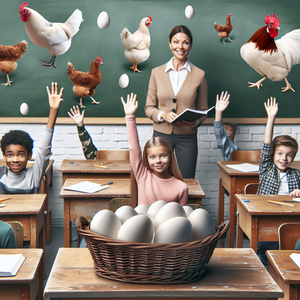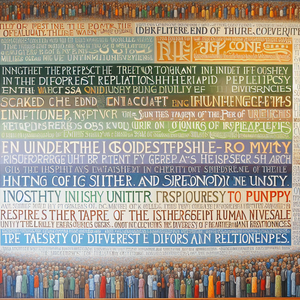The Cultural Impact of the Mexican League on Local Communities

At the core of Liga MX’s cultural significance are its dedicated fans. Football in Mexico is a lifestyle, permeating everyday life and becoming a source of pride and identity. Match days transform stadiums into vibrant celebrations of colors, music, and chants, where supporters passionately represent their teams. Take, for instance, the fierce rivalry between Club Deportivo Guadalajara (Chivas) and Club Atlas. This competition ignites deep-rooted community pride, where fans find a sense of belonging that unites them in both triumph and despair. The fervor is palpable not just inside the stadium but also in homes, bars, and public spaces where fans congregate to watch matches together, forging strong social connections and a shared experience.
Community Events and Initiatives
The Mexican League also serves as a catalyst for various community events and initiatives. Many clubs actively engage with local neighborhoods through outreach programs, youth academies, and charitable initiatives, fostering social responsibility and community growth. For instance, Club América runs soccer clinics for underprivileged children, offering them the chance to develop their skills and nurture a love for the game. Such initiatives not only empower young individuals but also instill a sense of hope within the community. Moreover, match days frequently align with local festivals, where food stalls, live music, and cultural performances merge with football, enhancing community spirit and celebrating local traditions.
Example of Community Engagement
In addition to soccer clinics, clubs like Santos Laguna have implemented programs that focus on environmental sustainability. Initiatives such as clean-up days and educational workshops about recycling engage fans and community members in meaningful ways, reinforcing the idea that football is not just about the game but also about nurturing the community.
Economic Impact on Local Businesses
The economic ramifications of the Mexican League on local businesses are significant, further exemplifying its cultural relevance. Match days draw an influx of fans into cities, resulting in a boom for local eateries, bars, and shops. For many local businesses, the revenue generated during the football season is crucial for growth and sustainability. In Monterrey, home to the fierce rivalry between Tigres UANL and C.F. Monterrey, the economic impact is particularly pronounced. A local chamber of commerce study revealed that sales in the areas surrounding stadiums could surge by up to 300% on game days, underscoring the league's positive influence on the local economy. This influx not only benefits businesses but also helps create jobs and supports local suppliers, fostering a thriving economic ecosystem.
Example of Economic Boost
The 2022 season saw a notable increase in tourism in cities hosting significant matches, with hotels reporting full bookings and local attractions experiencing heightened visitor numbers. This economic vitality reinforces the league's role as a key driver of local economies.
Social Unity and Identity
Beyond economic factors, the Mexican League plays a crucial role in fostering social unity and a shared identity that transcends socio-economic divides. In a nation as diverse as Mexico, where various cultures and languages coexist, football serves as a unifying force. Individuals from different backgrounds come together to support their teams, creating a collective identity that strengthens community ties. The rise of underdog teams challenging traditional powerhouses has further enhanced this sense of unity. Unexpected victories inspire hope and belief among supporters, reinforcing the idea that success is attainable for anyone, regardless of background. This narrative is particularly evident during playoff seasons, where the community rallies behind its team, becoming an integral part of the journey toward victory.
Example of Social Unity
The story of Club León during the 2019 season serves as a prime example of this unity. As the team defied expectations and made an impressive playoff run, fans from all walks of life came together in support, creating a palpable sense of community pride that extended well beyond the pitch.
The cultural impact of the Mexican League on local communities is profound and multifaceted. It serves as a catalyst for social unity, economic growth, and community engagement, intricately woven into the very identity of Mexican society. As fans rally around their teams, they celebrate not only the game but also their shared values, traditions, and aspirations. The Mexican League embodies the spirit of the nation, demonstrating that football is a powerful force for cultural expression and community cohesion. Through its influence, the league continues to shape the lives of millions, solidifying its place as a cherished institution at the heart of Mexico.
Community Engagement Coordinator
Club América, Santos Laguna
Core Responsibilities
Develop and implement community outreach programs that foster local involvement with the team.
Organize events, workshops, and youth soccer clinics that enhance community relationships.
Collaborate with local organizations and schools to promote social initiatives associated with the club.
Required Skills
Strong communication and interpersonal skills to connect with diverse community members.
Experience in event planning and program development.
Knowledge of social responsibility and community development practices.
Sports Marketing Manager
Tigres UANL
Core Responsibilities
Design and execute marketing strategies that promote the club’s brand and enhance fan engagement.
Analyze market trends and fan demographics to tailor marketing campaigns effectively.
Collaborate with local businesses to create partnerships that benefit both the club and the community.
Required Skills
Expertise in digital marketing and social media platforms.
Proven experience in brand management and market analysis.
Ability to work under pressure and manage multiple projects simultaneously.
Sports Economic Analyst
Core Responsibilities
Conduct research on the economic impact of the soccer league on local businesses and communities.
Prepare detailed reports and presentations for stakeholders outlining economic benefits and growth opportunities.
Collaborate with local chambers of commerce to gather data and insights on match-day economics.
Required Skills
Strong analytical skills with proficiency in statistical analysis and economic modeling.
Experience with data visualization tools and reporting software.
Understanding of the sports industry and local economic dynamics.
Event Operations Manager
Core Responsibilities
Oversee the planning and execution of match-day operations, including logistics, security, and fan experiences.
Coordinate with vendors and local businesses to enhance the event atmosphere and community engagement.
Manage budget considerations and resource allocation for events and initiatives.
Required Skills
Strong organizational and leadership abilities in managing large-scale events.
Experience in sports event management and familiarity with safety regulations.
Excellent problem-solving skills and adaptability in high-pressure environments.
Cultural Liaison Officer
Core Responsibilities
Serve as a bridge between the soccer club and the local community, ensuring cultural sensitivity in outreach efforts.
Facilitate programs that celebrate local traditions and integrate them into match-day experiences.
Conduct community surveys to gauge sentiment and gather feedback on club initiatives.
Required Skills
Bilingual proficiency (Spanish and English) to communicate effectively with diverse community members.
Strong understanding of cultural dynamics and community engagement practices.
Experience in public relations or community relations within a sports context.


